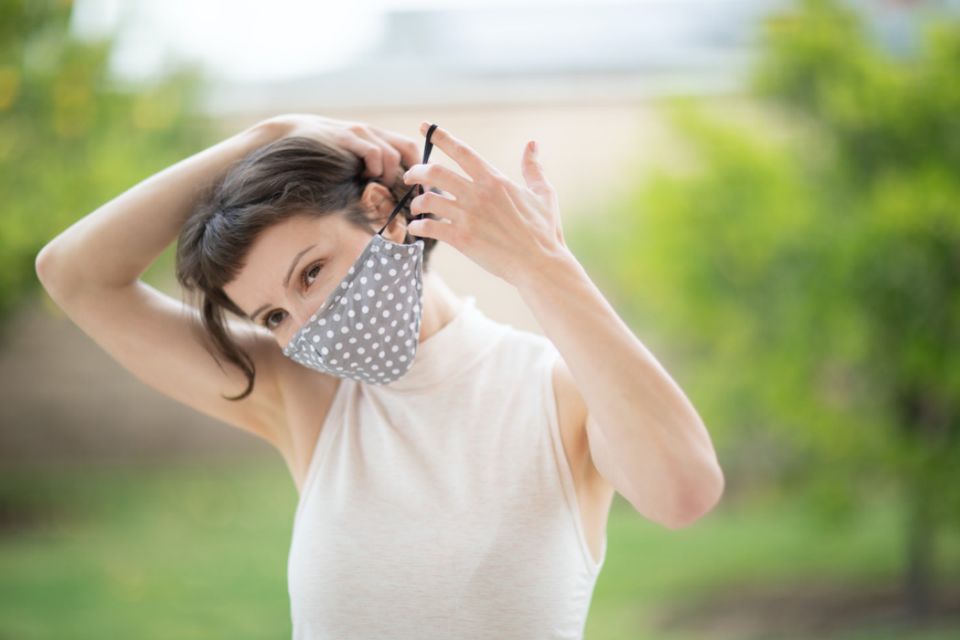You’ll find no shortage of medical advice out there during the coronavirus. Separating myth from fact, the current from the outdated can be tricky. And what advice is truly essential, the most important to prioritize?
Cutting through the noise—that’s why we asked doctors for the most important advice they wish you knew. Here’s what they told us. Read on, and to ensure your health and the health of others, don’t miss these Sure Signs You’ve Already Had Coronavirus
1
Take the COVID-19 Threat Seriously
The coronavirus threat is not ending anytime soon, no matter where you live. People of all ages can become seriously ill with COVID-19, and you can spread it even without developing symptoms. Follow all official recommendations about wearing face masks, social distancing and good hygiene practices to reduce the spread.
“Wash your hands throughout the day, especially if you have been out and have just arrived home, before you touch anything in the house. And take social distancing seriously. It will be a while before you can see family and friends, but you put your like at risk—and theirs—by not following the rules,” says Dr. Deborah Lee.
RELATED: COVID Mistakes You Should Never Make
2
Don’t Drink Diet Soda!

“Many people associate switching to diet soda, or other diet drinks, as a healthy alternative to some beverages,” says Drew Miller, MD, a family physician in Lakin, Kansas. “However, there have been numerous studies reporting the link between diet soda and weight gain, as well as increased risk of developing diabetes, heart problems, or other chronic health issues.”
The Rx: Switch out that soda for water, seltzer without artificial sweeteners, or homemade spa water — add slices of lemons, limes, oranges or grapefruit to a pitcher of H20.
3
Don’t Be So Hard On Doctors
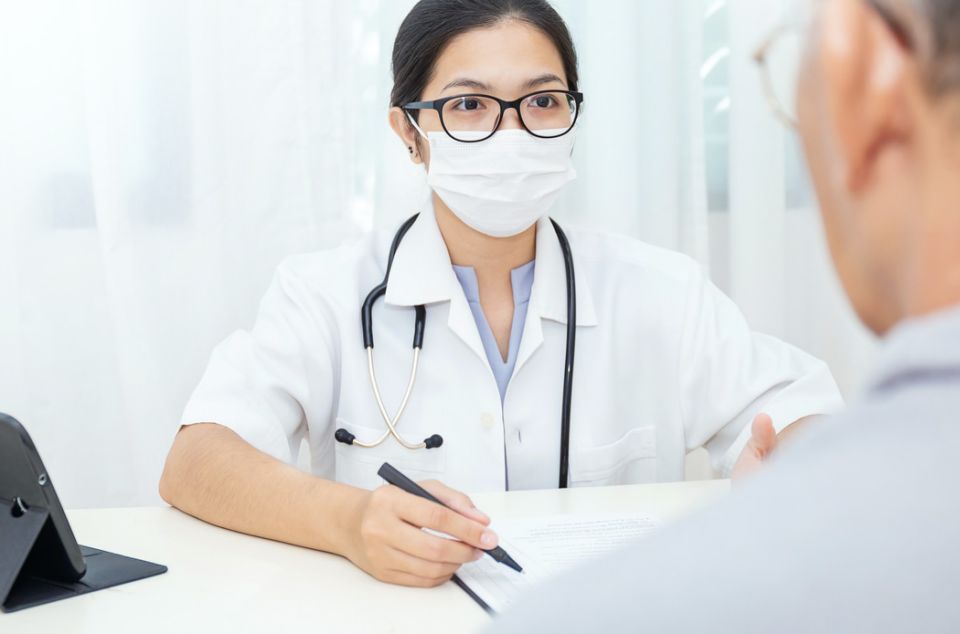
“For the most part, people are trying to be helpful, live up to expectations and keep their patients healthy,” says says Ariel B. Grobman, MD, a board-certified otolaryngologist with Greater Miami ENT. “Mistakes do happen, and problems can be missed, but we should have compassion for healthcare practitioners.”
4
Avoid This Disinfectant
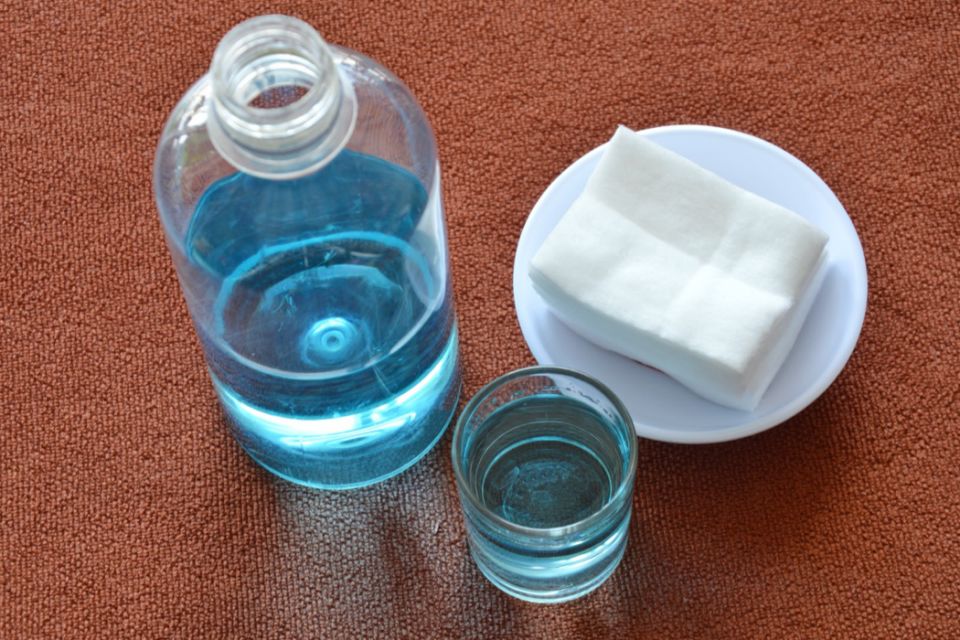
“Many people think that bubbling of hydrogen peroxide on a wound is proof that there were bacteria in the wound and that the bacteria are being killed,” says Dr. Robert Beam of Novant Health-GoHealth Urgent Care in Kernersville, North Carolina. “The bubbling justifies its repetitive use.”
The Rx: Clean wounds with soap and water, apply antibacterial ointment, and cover with a Band-Aid. But skip the bubbly stuff. “Hydrogen peroxide is a potent oxidizing agent,” says Beam. “It damages all organic material, bacterial and human.”
5
Breathe This Way for Better Sleep

“Breathing through the nose is a simple yet effective method to achieve better sleep,” says Anil Rama, MD, adjunct clinical faculty at the Stanford Center for Sleep Sciences and Medicine. “Our nervous system consists of two parts: the sympathetic system and the parasympathetic system. The sympathetic or ‘fight and flight’ system is active during the day; the parasympathetic or ‘rest and digest’ system is more active at night. Any process that increases the activity of the sympathetic nervous system makes sleep difficult. Mouth breathing increases the activity of the sympathetic nervous system.”
6
Prioritize Mental Health
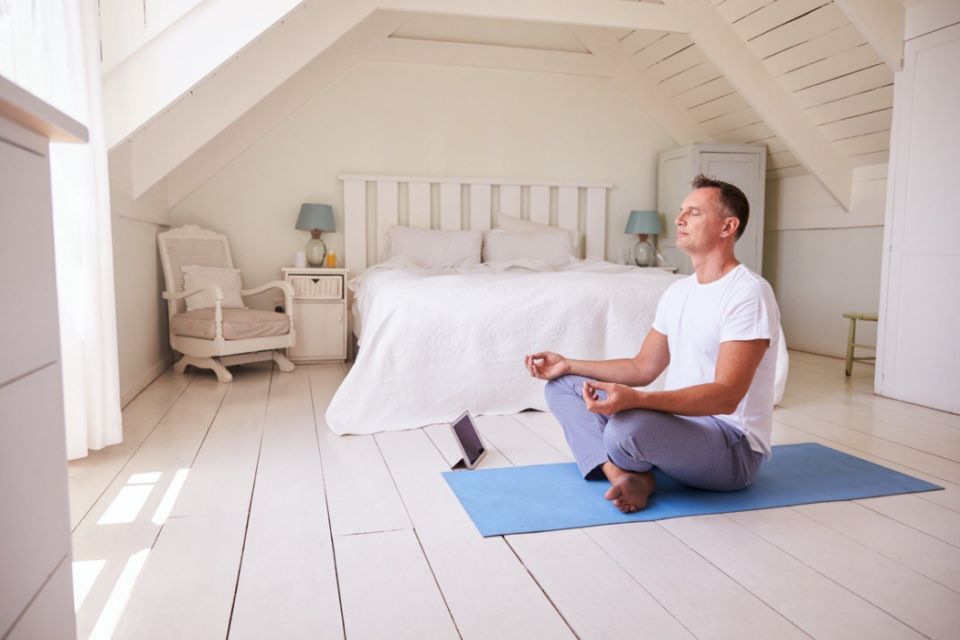
“If I could give one health tip, it would be to preserve your mental health and inner peace at all costs,” says Sophia O. Tolliver, MD, MPH, a family medicine physician with the Ohio State University Wexner Medical Center.
The Rx: “Meditating in the morning and setting an inner agenda and positive intention can be a great way to set the tone for the day,” she says. “At the end of a long day, meditating to clear your mind of all negativity, forgiving the upsets of the day, and reconciling your authentic self can set the stage for restful and relaxing sleep and really is a form of self-care at its highest level.”
7
Do This to Slash Your Breast Cancer Death Risk
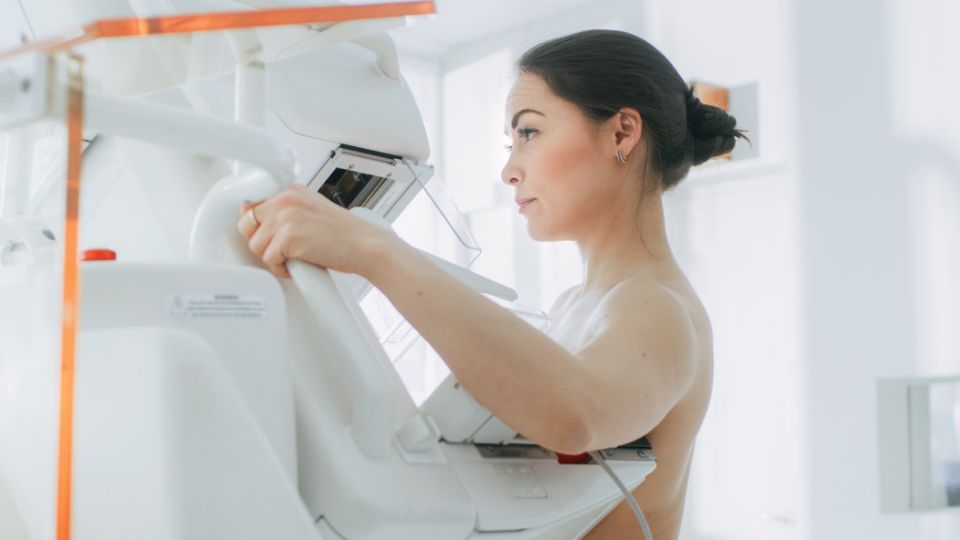
“Get your annual screening mammograms, know your family cancer history, and educate your children about cancer risk identification, management and reduction,” says Anjali Malik, MD, a breast imaging radiologist in Washington, D.C. “Annual screening mammograms decrease deaths from breast cancer by 40 percent.”
The Rx: “With the top two risk factors for breast cancer being non-modifiable (female gender and aging), it is important for every woman, regardless of family history, to have an annual mammogram starting at the age of 40,” he says.
8
Know Your Family History of Cancer

“Knowing your family history of all cancers (breast, colon, ovarian, pancreatic, thyroid, lung, melanoma) may impact your overall risk for cancer, and may raise the need for genetic testing,” says Malik. “Identifying our risks, and knowing how to reduce those that are modifiable, are a key part of prevention and precision medicine in the 21st century.”
9
Avoid Falls With Balance Training
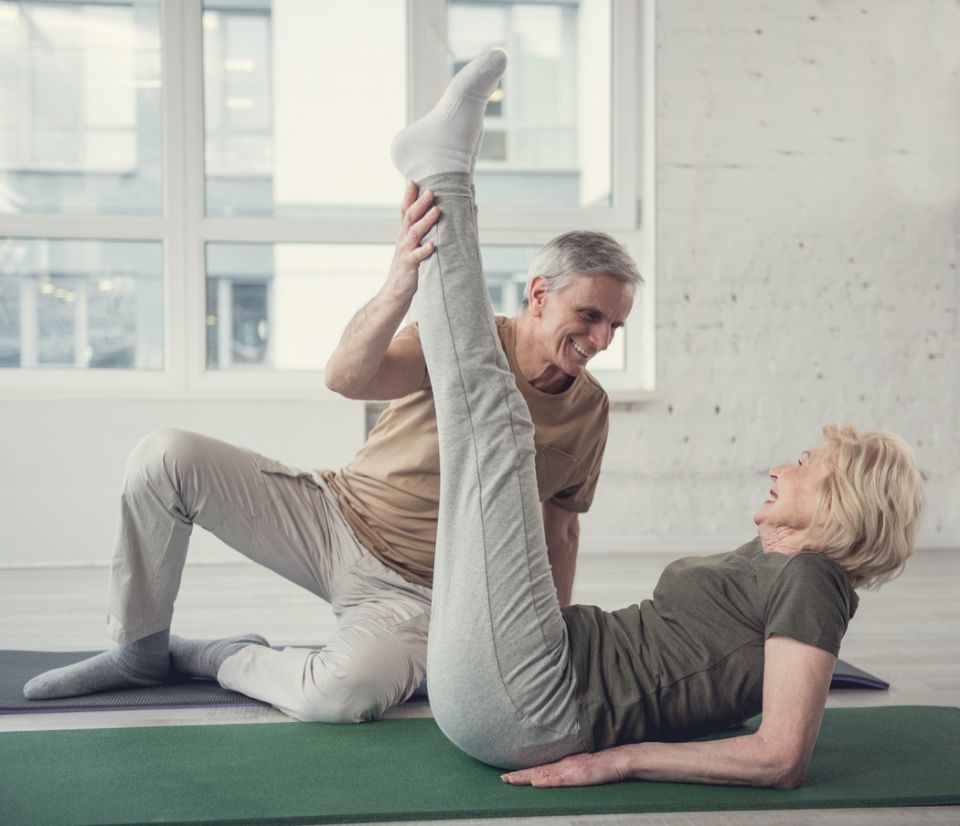
“Aging is a process none of us are immune to, and so preparing for it is crucial,” says Dr. Thanu Jey, DC, clinic director at Yorkville Sports Medicine Clinic. “Many old-age accidents occur from falls, and it’s important to start fall-prevention training before it’s too late.”
The Rx: “As your parents age, it’s a good idea to begin stability and balance training early, so it becomes part of their daily routine,” says Jey.
10
Eat Mindfully
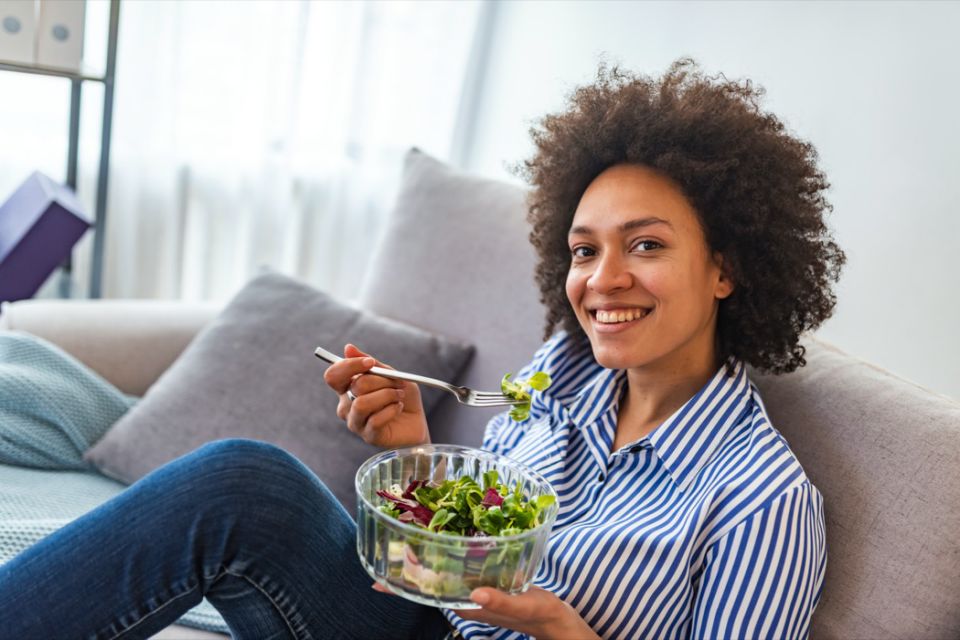
“It’s important to maintain a healthy weight and lifestyle, because overall health and wellness decreases chances of many problems, including heart disease, diabetes, sleep apnea and more,” says Nodar Janas, MD, medical director of Upper East Side Rehabilitation and Nursing Center in New York City. Eating mindfully can be a powerful tool for maintaining a healthy weight.
The Rx: At mealtime, “Decrease your portion size by at least half, make sure you are actually chewing your food, make one meal daily only fruits and vegetables, and stop eating at least two hours before sleep,” advises Janas. “It takes 15 minutes for stomach receptors to send information to the brain telling it you’re full, so if you eat slowly in the beginning of your meal, you may eat a third of the portion you might otherwise eat.”
11
Don’t Ignore Pain In This Spot
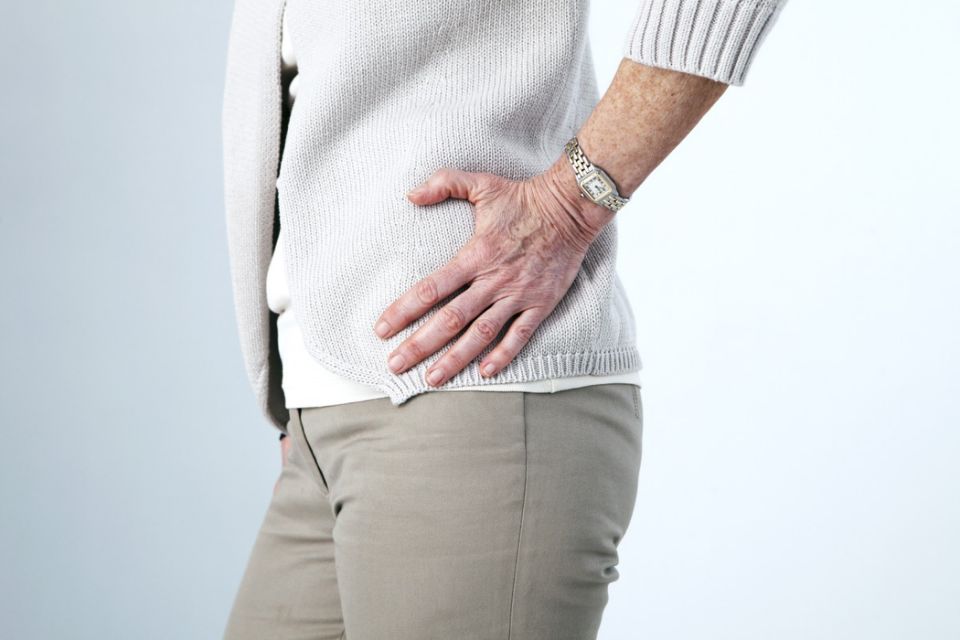
“If you’re having pain with sitting for long periods of time near where the front pocket of your jeans are, this is probably coming from your hip joint,” says Derek Ochiai, MD, an orthopaedic surgeon and sports medicine doctor in Arlington, Virginia. “You should probably not ignore it, and at least get it checked out by an orthopaedic surgeon, before it becomes arthritis.”
12
You Must Social Distance Yourself
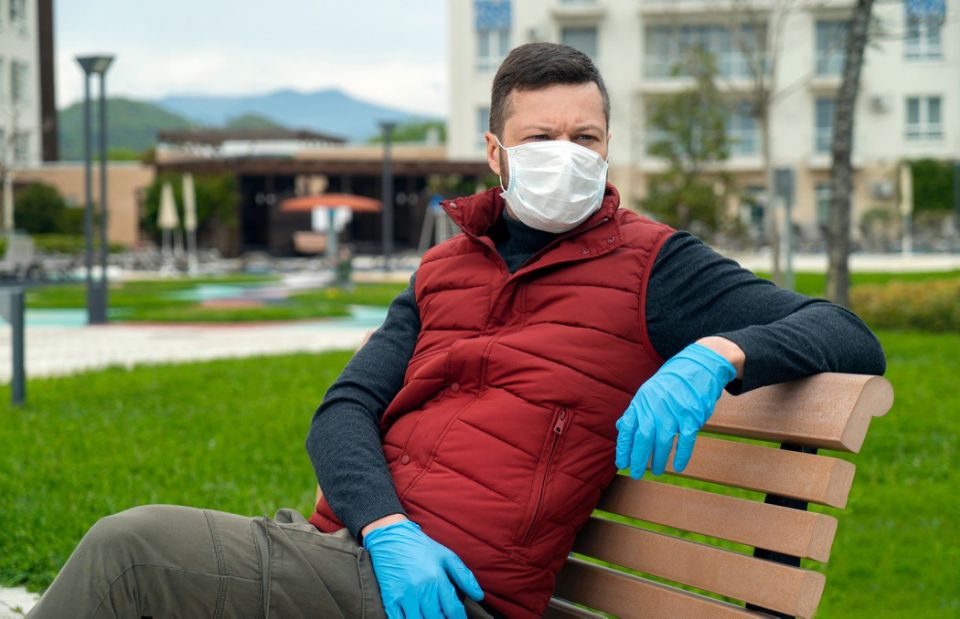
Even as cities reopen after the lockdown, it is still important to maintain a six-feet distance from other people to prevent the spread of coronavirus. Until a vaccine is developed, or an antibody test, we cannot be sure who is at risk—so must assume everyone is at risk.
RELATED: Everything Dr. Fauci Has Said About Coronavirus
13
Be Vigilant With Prescriptions
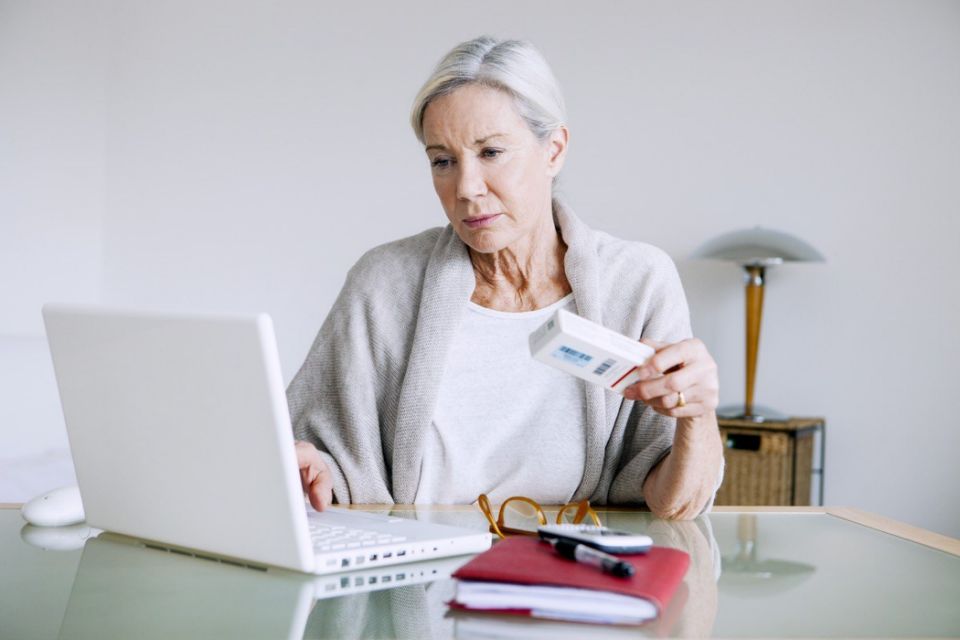
“When prescribed medication, ask your doctor to explain why you need it, and if you agree, be compliant,” says Janas. “In the U.S., we are being overmedicated.”
The Rx: “When you are prescribed a medication by your doctor, make sure to take the time to understand why it’s been prescribed,” says Janas.
14
Put This Old Wives’ Tale to Bed

“Feed a cold, starve a fever’ is not true!” says Betsy Koickel, MD, associate medical director of Northwell Health-GoHealth Urgent Care in New York. “Taking in an adequate amount of calories and fluids are important to your body fighting off most illnesses. Increasing your fluid intake during any illness is helpful to your immune system. Fasting during illness may make you more at risk for weakness, dehydration, and fainting.”
The Rx: Eat as normal when you’re ill, and make sure you’re hydrating. Aim for four glasses of water a day when you’re healthy; during illness, you might need more.
15
You Have To Want Therapy To Work
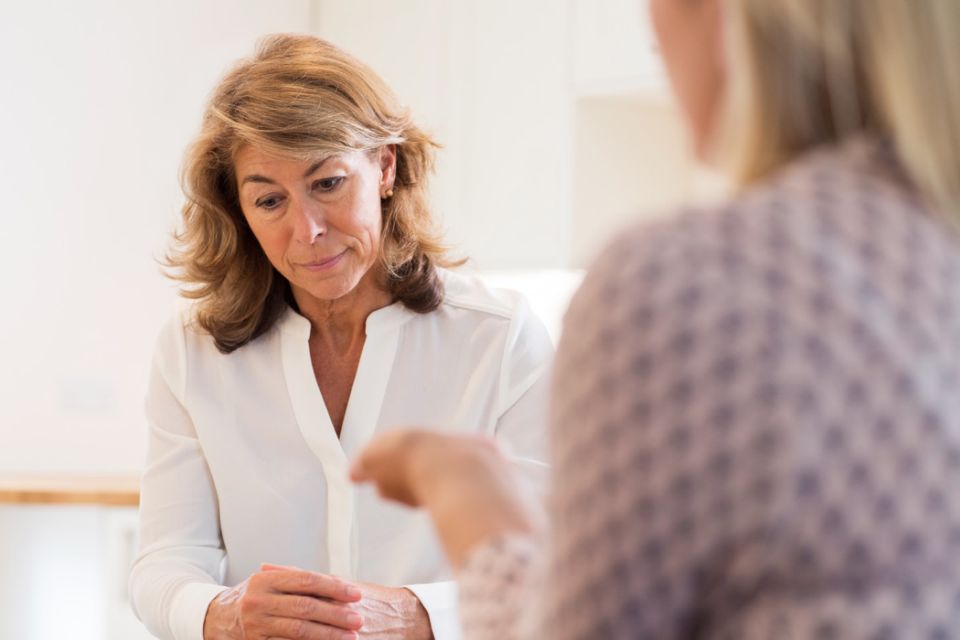
“If you think you should go to therapy, but don’t really want to invest emotionally in it, aren’t really willing to be vulnerable and work hard and sometimes even suffer in it, it probably won’t work so don’t waste your time and money,” says Gail Saltz, MD, associate professor of psychiatry at the New York Presbyterian Hospital Weill-Cornell School of Medicine. “Therapy isn’t a magic wand, you actually have to fully participate in it.”
16
Feeling Grateful Is Underrated

“However difficult things are in life, take a few minutes every day to think about what you do appreciate,” says Saltz. “If you don’t make a point of it, you probably won’t do it and honestly you can completely lose perspective on your life.”
The Rx: “Take five minutes every day and think about what you do feel grateful for,” says Saltz. “You’ll find that even over a couple of weeks you’ll feel more positively.”
17
Light Therapy Box Really Works
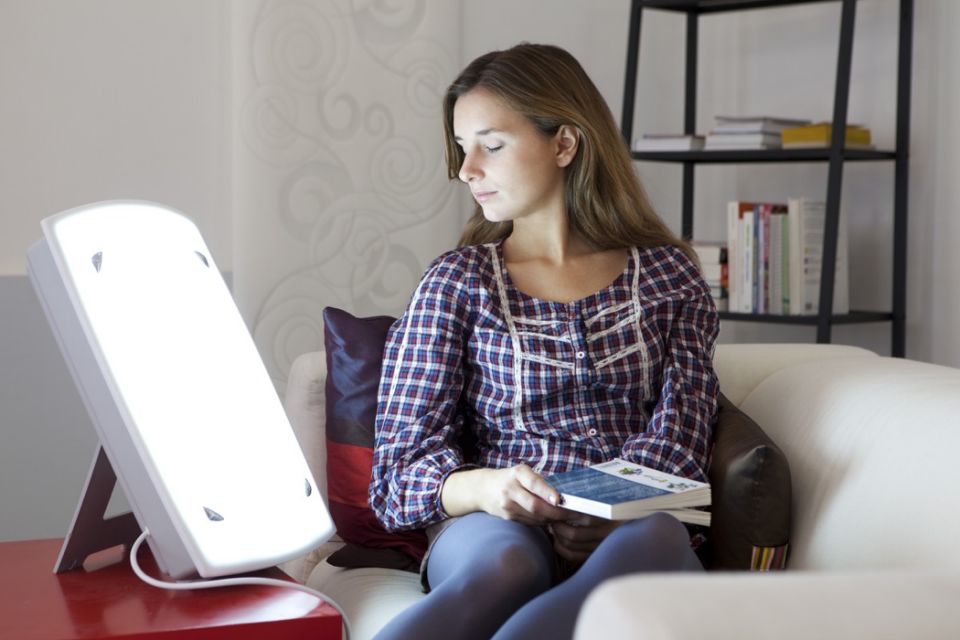
The “winter blues” aren’t a myth or something to be ignored. “Many people really do have a mood change for the worse when the days become shorter. If you feel seasonally down or irritable or tired and slowed down, try light!” says Saltz. “It’s odd to people to think light could do something to your brain, but it does. You need the right type of light, and then daily use, but it can change your entire state of wellbeing during the fall/winter months.”
The Rx: Many models of light boxes are available, from the inexpensive to the deluxe. Talk to your doctor about any season-related emotional changes you’re feeling, and if light box therapy might be right for you.
18
Get Adequate Sleep
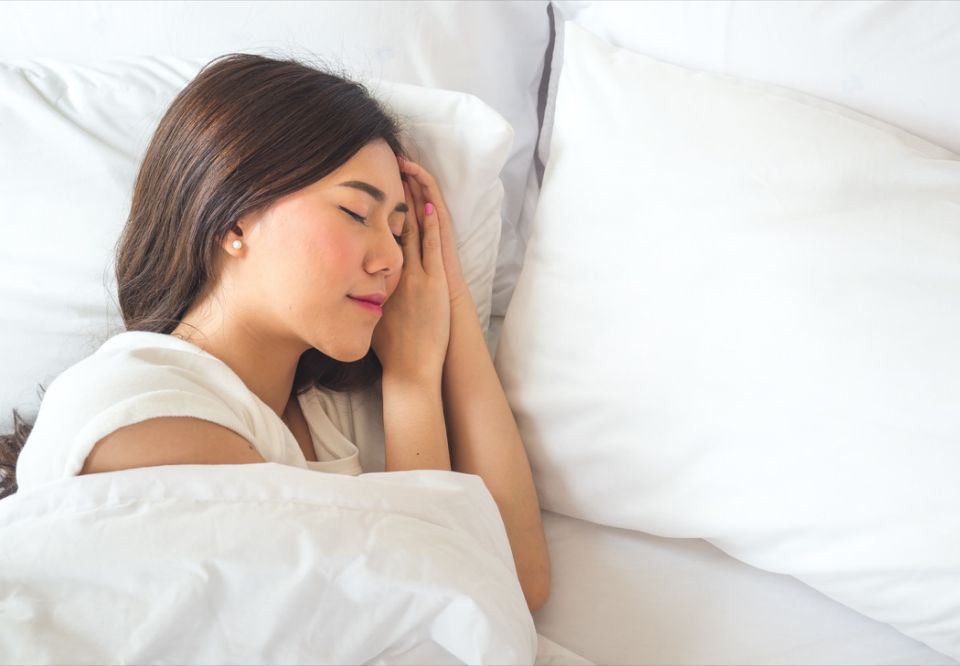
“Make sure you’re getting at least seven hours of sleep,” says Janas. “Lower room temperature if you can’t fall asleep, or listen to relaxing music instead of relying on medications. Ironically, this is one I don’t follow myself. I get about four hours of sleep a night because I am constantly getting calls from patients or colleagues. However, I have trained myself to work and function this way and I try, throughout the day, to take naps when possible.”
The Rx: Experts like the National Sleep Foundation recommend getting seven to nine hours of sleep a night. If you’re having chronic trouble getting that amount, talk to your doctor. He or she might advise cutting back on caffeine, limiting naps, getting more exercise or addressing anxiety or depression.
19
Do This to Avoid Stress Fractures
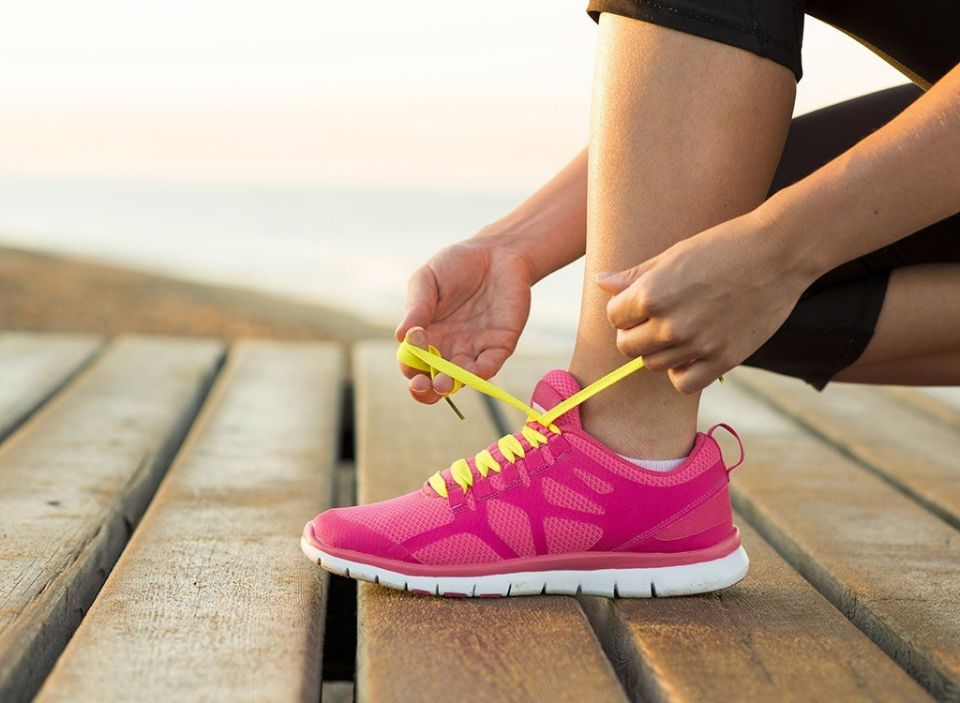
“You might not have had an injury, but you could still get a stress fracture, which is microscopic damage to the bone,” says Velimir Petkov, MD, a board-certified podiatrist with Premier Podiatry in Clifton, New Jersey. “You can get them by wearing flip flops, sandals or shoes that fail to provide sufficient cushioning and shock absorption. Walking, jumping, running or even standing for extended periods of time can cause stress fractures.”
The Rx: “Wearing comfortable shoes with good padding, as well as getting plenty of Vitamin D and calcium is important in preventing stress fractures,” says Petkov. “Your primary care doctor can order a bone density test to verify your bone mass.”
20
Avoid Nail Salons
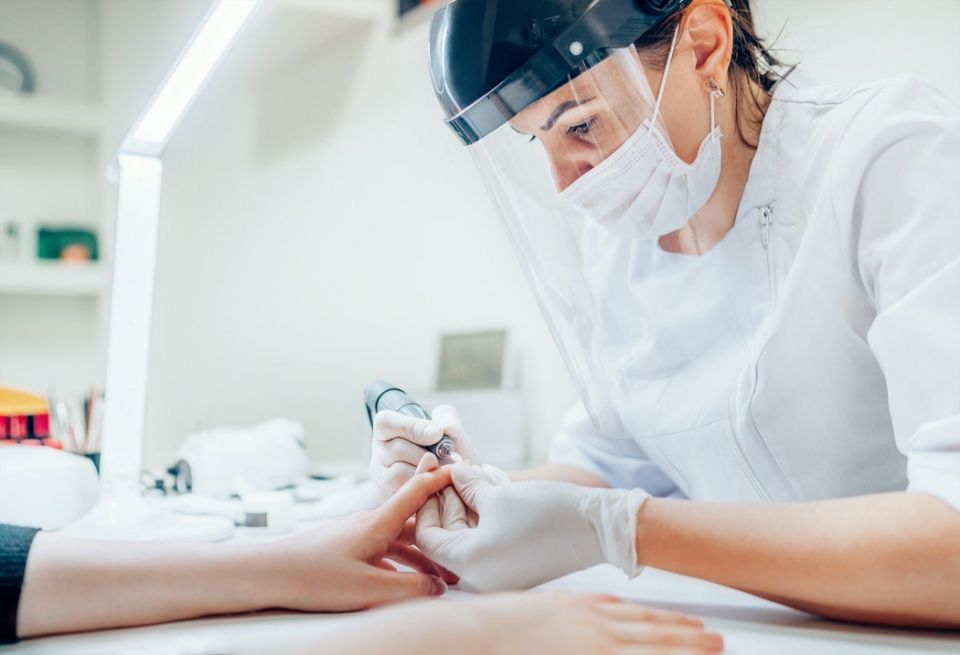
As nail salons reopen: “Getting a pedicure might seem like a great idea, but many salons don’t disinfect the whirlpools or footbaths properly,” says Petkov. “Drains and filters often don’t get cleaned in between appointments. You can get a plantar wart, or a bacterial or fungal infection which would require medication, lots of patience and time to get rid of. Athlete’s foot (tinea pedis) is a very common fungal infection that spreads particularly well in moist areas.”
RELATED: I’m an Infectious Disease Doctor and Would Never Touch This
21
Believe The Basics Are The Most Important

“Those are eating the best foods, getting adequate exercise throughout the day, managing chronic stress, enhancing sleep, avoid all tobacco products, challenge your mind daily and spend time with friends and family,” says Stephen C. Schimpff, MD, MACP, a board-certified oncologist and infectious disease specialist and author of Longevity Decoded – The 7 Keys to Healthy Aging.
22
Eat More Plant-Based Foods
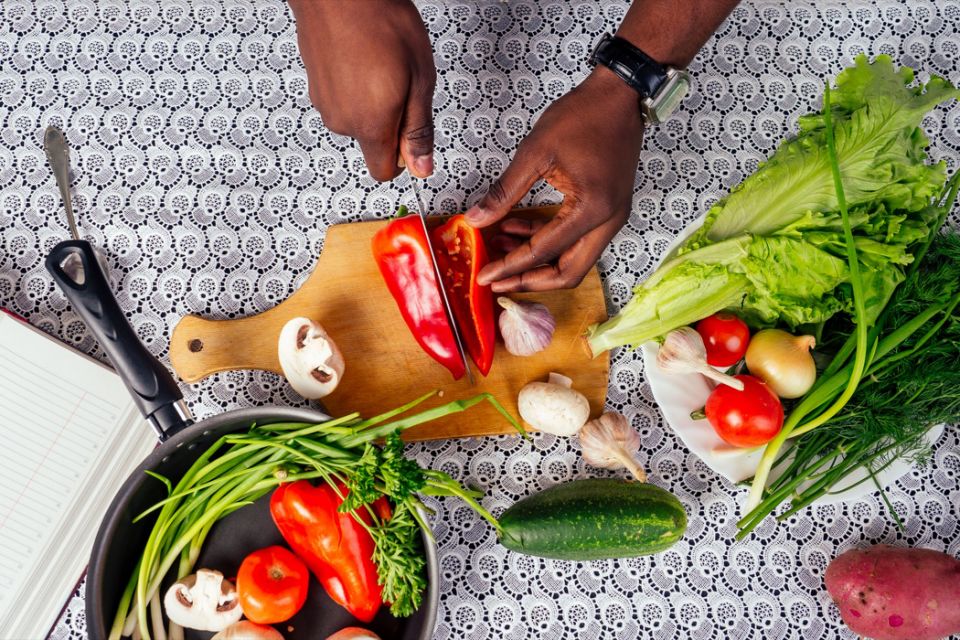
“We ate quality foods in my mother’s day, but the emphasis was on meat as the centerpiece with vegetables as an add-on,” says Schimpff. “If she were alive today, I would encourage her to add many more vegetables to her diet — organic if possible — reduce the potatoes, and only buy grass-fed beef and free-range chicken.”
The Rx: “Make the vegetables one-half or more of your plate and the meat no more than one quarter,” advises Schimpff. “Increase fish for the omega-3s, use olive oil and eat nuts and seeds and avocados, all for their healthy oils.”
23
Get A Coronary Artery Calcium Score
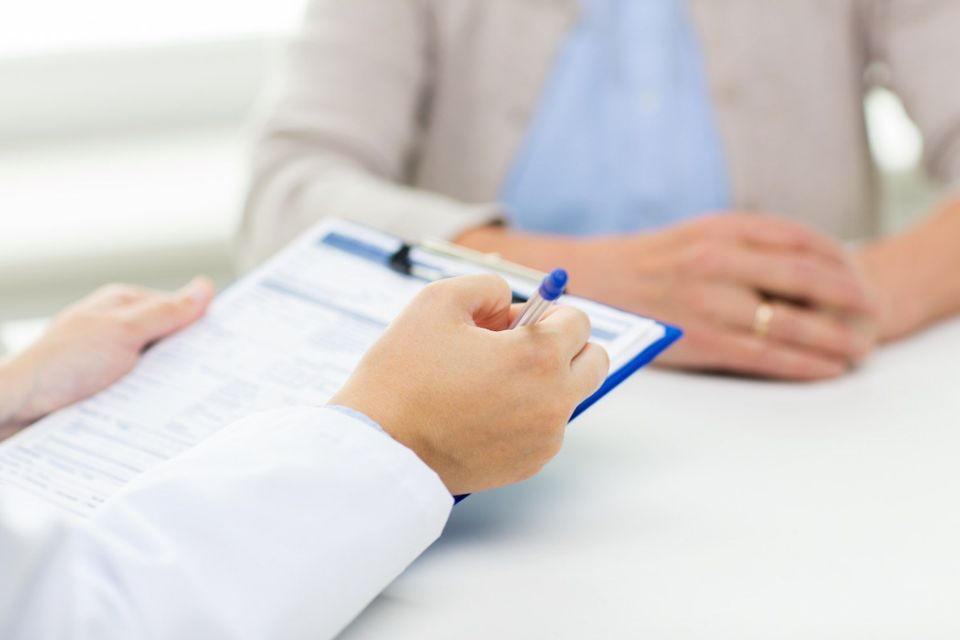
“This is a very quick and inexpensive CT scan that can tell you if you have hard plaque in your coronary vessels,” says Anthony Youn, MD, author of Playing God: The Evolution of a Modern Surgeon. “I recommend it for anyone over the age of 40 who’s concerned about developing heart disease. It’s super-easy and inexpensive and just might save your life.”
The Rx: Ask your doctor if the test is right for you.
24
Practice Good Oral Hygiene
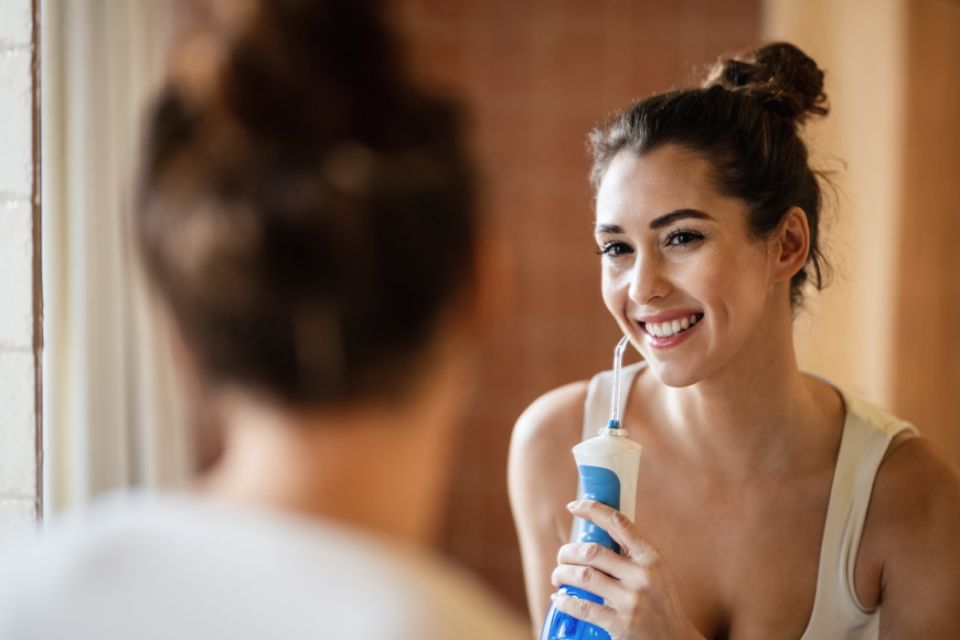
“The most important advice I could give is to keep your mouth clean,” says Carl Medgaus, DMD, a dentist in Pittsburgh, Pennsylvania. “People often don’t realize the systemic effect that oral health has on the body. Plaque buildup on teeth, for example, can lead to atherosclerotic heart disease.”
The Rx: “Use an electric toothbrush with a two-minute timer, separated in 30-second intervals, so you know how long to spend on each section of the mouth,” says Medgaus. “Then equip yourself with a water flosser. No one likes to floss. Even I hate it. But it has to be done. Water flossing makes it easier. I had my doubts about water flossers at first, but clinical research shows that they are equivalent to traditional floss when it comes to removing plaque.”
25
Drink This Daily

“Every day, drink a tea or coffee, and also a cup of pomegranate juice,” says William W. Li, MD, author of Eat To Beat Disease: The New Science of How Your Body Can Heal Itself. “Coffee and tea can slow cellular aging, starve cancer, reduce the risk of stroke, and improve longevity. Natural chemicals in pomegranate improves your gut microbiome to help boost the immune system.”
26
Avoid This Treatment
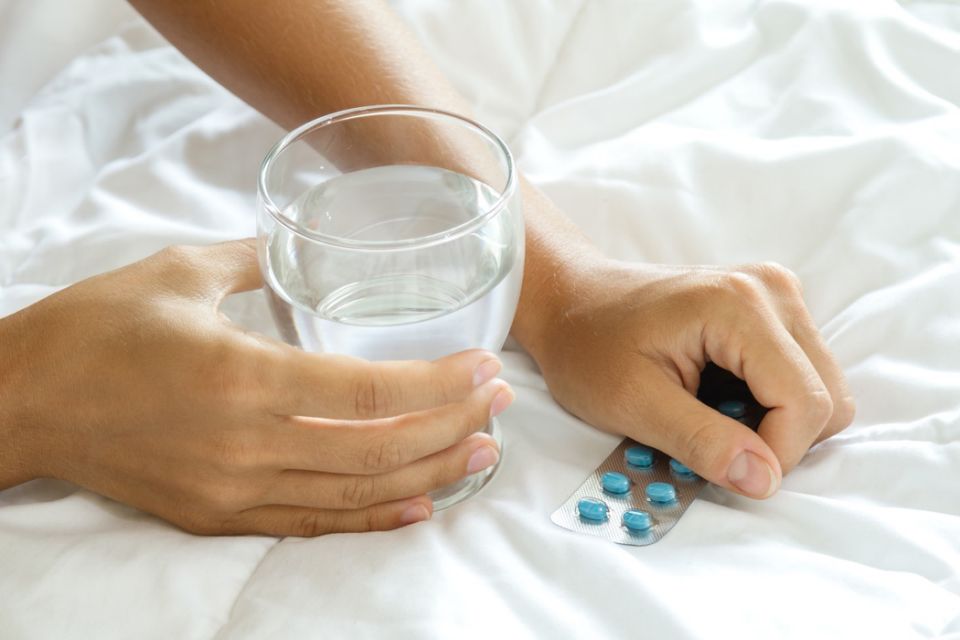
“Don’t stay long-term on estrogen replacement therapy,” says Li. “Many older women have been taking hormone replacements for years, but long-term use can increase the risk of breast cancer.”
RELATED: Worst Things For Your Health—According to Doctors
27
Eat More of This

“Eat more soy,” says Li. “Contrary to popular belief, soy doesn’t cause breast cancer. In fact, research shows eating more soy actually lowers the risk of breast cancer.”
The Rx: Experts recommend eating a moderate amount of soy — one to two servings a day. Foods that are rich in soy include edamame, alternative meats such as the Impossible Burger, soy milk, tempeh and soy protein.
28
Slow the Spread of Germs This Way

“As a healthcare professional, I can’t stress this one enough,” says Dena Nader, MD, regional medical director of MedExpress based in Washington, Pennsylvania. “Washing your hands frequently, and well, is one of the best ways to avoid sickness and spreading germs to others. But what we often forget about are those other surfaces that we touch all the time – our phones, steering wheels, doorknobs, faucets, toys, remotes – that also harbor bacteria that can make us sick.”
The Rx: “I typically recommend to my patients that at least once a week, and more during cold and flu season, they remember to wipe down these frequently touched, but easily overlooked surfaces with antibacterial wipes to help slow the spread of germs,” says Nader. “Also, avoid putting pens or pencils in your mouth – but if it’s a habit you just can’t seem to break, make sure you disinfect these items every day.”
RELATED: Everything Dr. Fauci Has Said About Coronavirus
29
Exercise Regularly—It’s Easier Than You Think
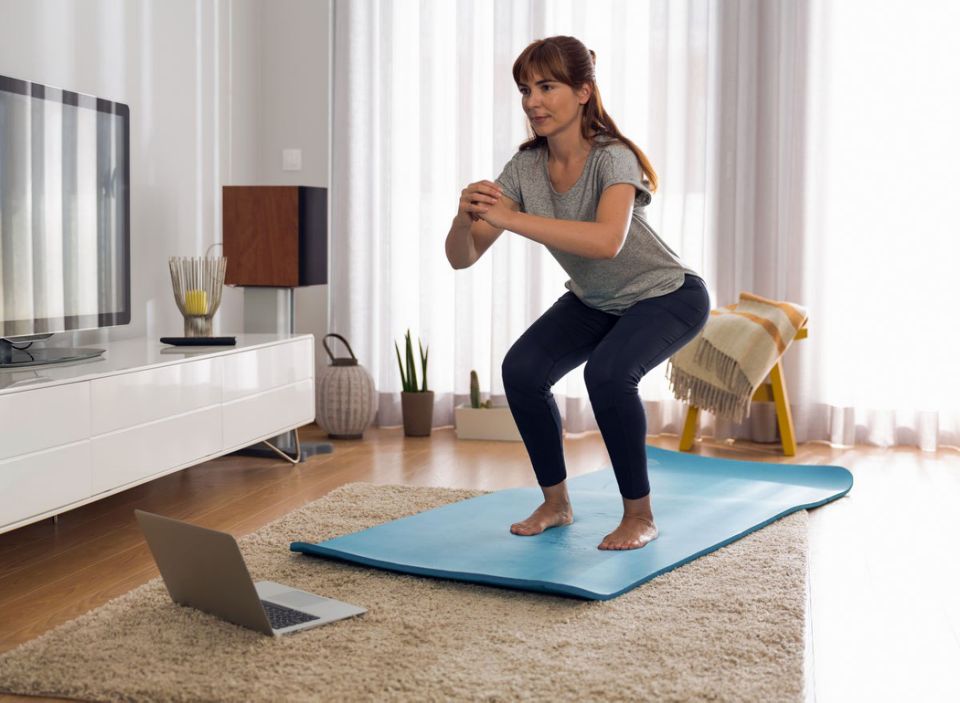
“Many of the patients I talk to feel overwhelmed at the idea of regular exercise because they think it’s time consuming and hard work — but it doesn’t have to be,” says Nader.
The Rx: “Making little adjustments to your normal routine, like taking the steps instead of the elevator at work or in your apartment complex, can make a big difference,” she says. “When you’re running errands, try parking as far away from stores as possible so you have to walk a little bit extra. Take time during your lunch break and get some steps in by walking around your building. If and when you’re ready to take it to the next level, remember that it’s always a good idea to talk to your doctor before starting a new exercise routine.”
30
Stay Hydrated
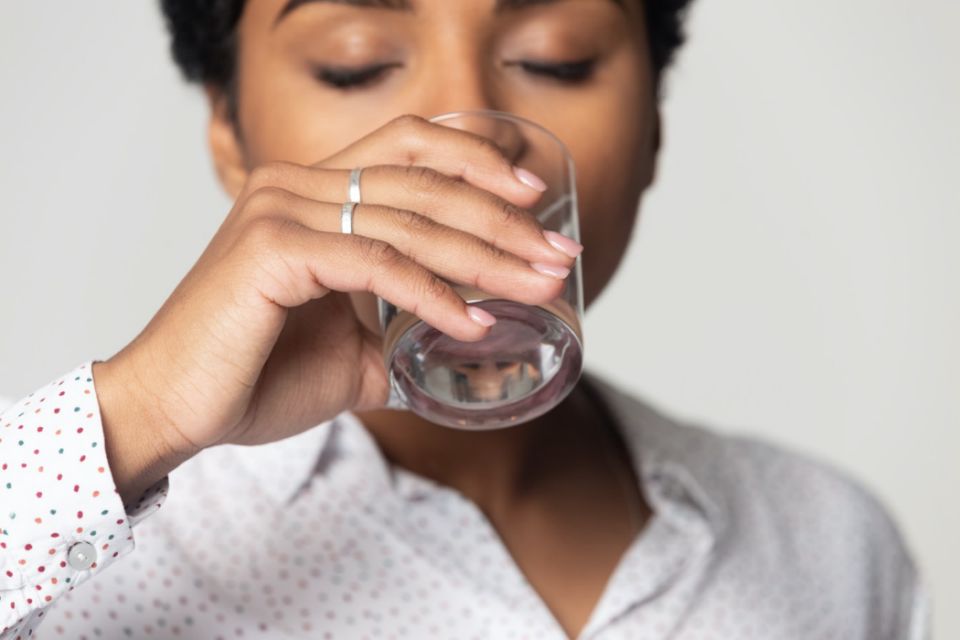
“Dehydration is very common – in fact, many of my patients don’t even realize they’re chronically dehydrated,” says Nader. “I’m always reminding my patients to drink more water even before they’re thirsty. If it becomes an ongoing issue, lack of water and dehydration can lead to serious complications, like urinary and kidney problems, heat-related illness, and seizures.”
The Rx: “While water is a great way to get and stay hydrated, there are alternatives for people who struggle to drink enough water or get bored with the taste,” says Nader. “Many vegetables, like celery, tomatoes, cucumbers, and broccoli, offer a unique alternative to water. And all fruits, especially grapefruit, watermelon, strawberries, and oranges, have a high water content and are an excellent source of vitamins and fiber, too. Homemade fruit smoothies, coconut water, and water infused with fruits like lemon and strawberries are also great ways to spice up your liquid intake for the day.”
31
Eat a Well-Balanced Breakfast
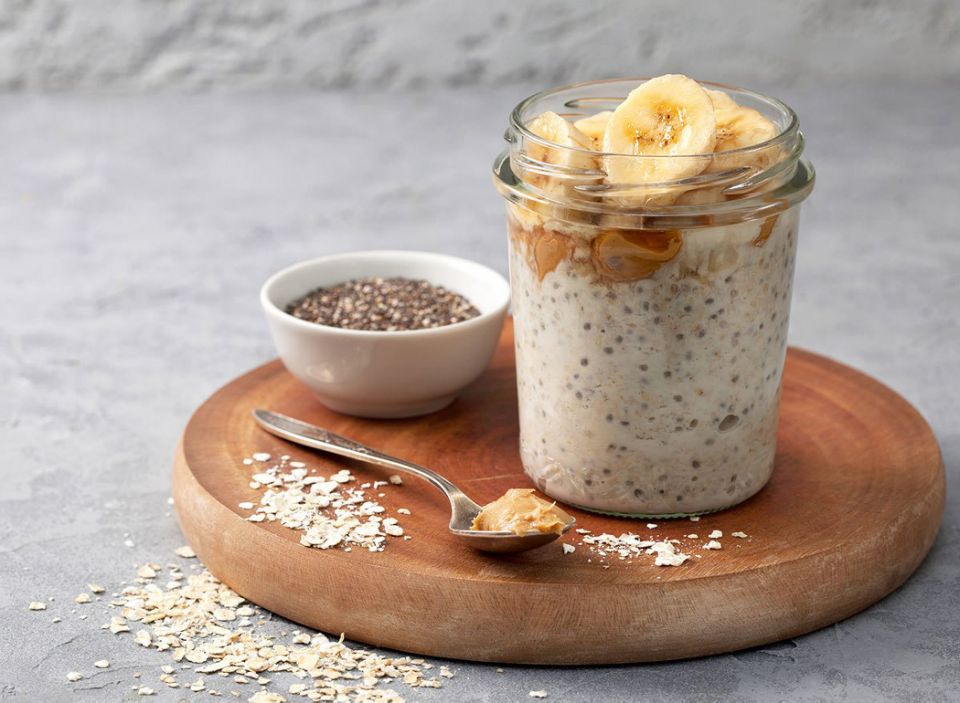
“Breakfast really is one of the most important meals of the day,” says Nader. “Not only can it help control weight, but it also helps you get the important vitamins and minerals that you need in a day.
The Rx: “I try to plan ahead as much as I can the night before,” she says. “There are so many different recipes for overnight oats, for example, which you can prep beforehand, so all you have to do is pull it out of the fridge the next morning. Pairing that with some fruit is a great first step to a healthy breakfast routine. If you are a morning person, try waking up a little bit earlier and starting simple. Opt for protein-rich eggs and pair it with a piece of whole-grain toast and some fruit.”
32
Loneliness Is Seriously Unhealthy
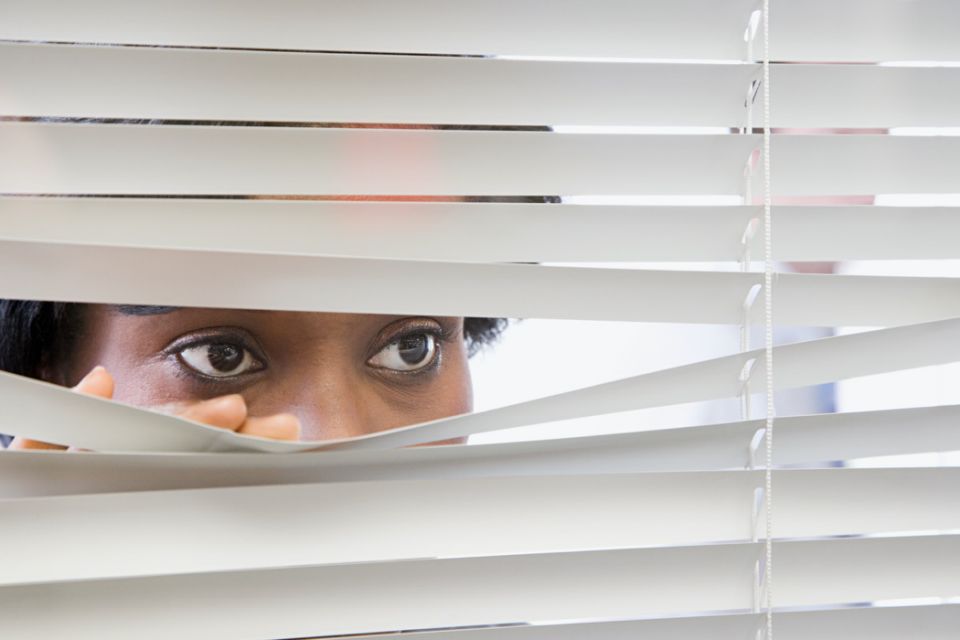
“Loneliness is the leading epidemic plaguing individuals over the age of 50 in America today,” says Prakash S. Masand, MD, CEO of the Centers of Psychiatric Excellence (COPE). “It is often missed by healthcare providers and family members, yet its consequences can be far-reaching and even tragic.”
The Rx: “Feeling lonely and being lonely take a real toll on the brain and on your overall health,” concurs Saltz. “You truly need to connect with others and have a few relationships that matter and nourish you, this is not something to just let go on. Do what you have to do to keep a few people in your life to care about, to connect with, to invest in.”
33
Have a Good Relationship With Your Doctors
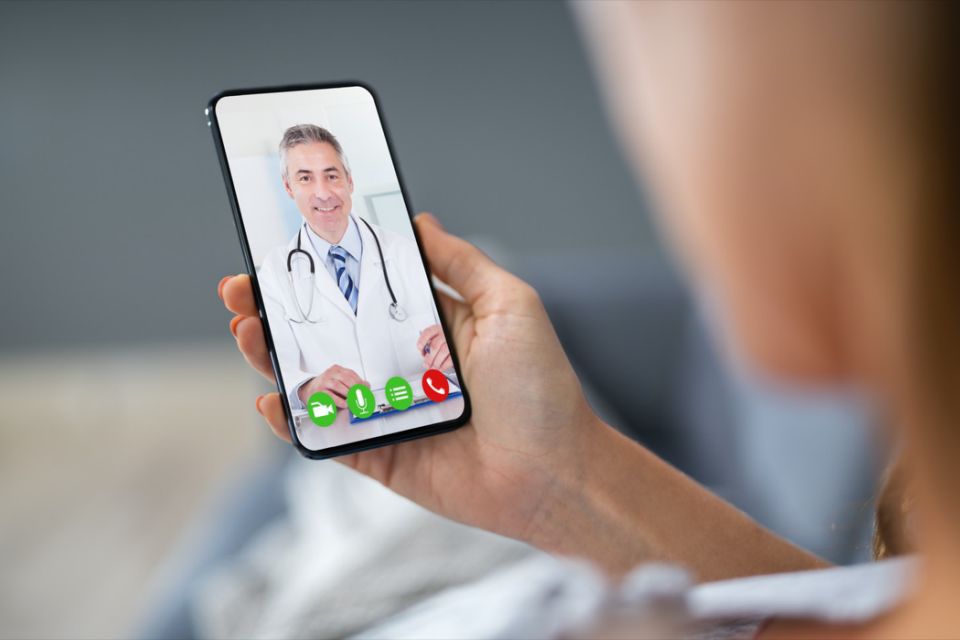
“Make the most of your relationship with your physicians,” says Angela U. Tucker, MD, a family medicine physician with the Ohio State University Wexner Medical Center. “Be organized when you go to your appointments with exactly what your concerns are and what symptoms have occurred since the problem started. If you feel that your health providers are not listening to you and have your best interest in mind, find someone who will. Your life may depend on it.”
34
Pursue Your Best Quality Of Life, Not Just What You Can Live With
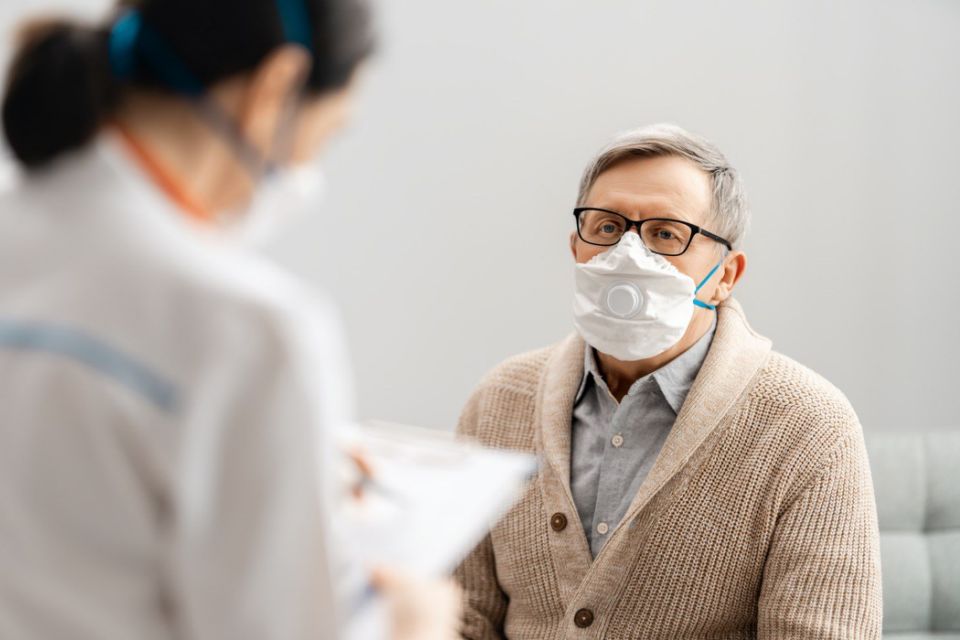
“Medicine has changed a lot in the previous 20 years, in terms of shifting focus toward improving quality of life,” says Ariel B. Grobman, MD, a board-certified otolaryngologist with South Florida ENT Associates. “In the past, people were encouraged to seek treatment and intervention when things were really bad. In my line of work, having one deaf ear was previously seen as ‘not that big of a deal,’ — after all, you have a second good ear. Nowadays, we strive to improve patients’ lives by restoring function to as normal a level as possible.”
The Rx: “Everyone has a right to live their best life,” says Grobman. Prioritize your mental and physical health, talk openly with your physician about symptoms, and don’t suffer in silence.
35
Get Your Children This Vaccine
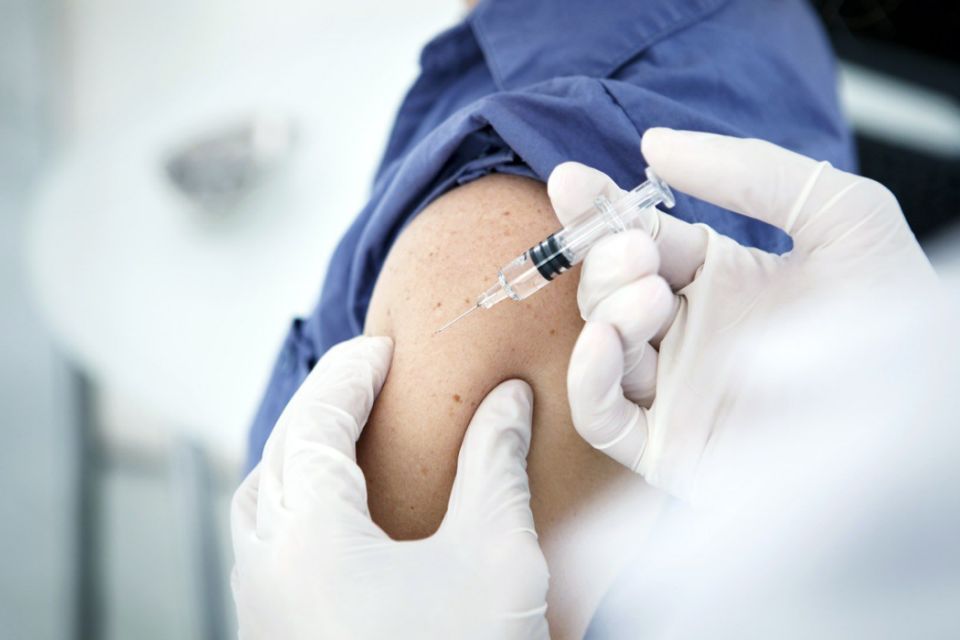
“Get your children vaccinated against the HPV virus,” says Eamon McLaughlin, MD, an otolaryngologist with Greater Miami ENTs. “It prevents cervical, anal, and oropharyngeal cancer.”
The Rx: According to current guidelines, boys and girls should be vaccinated against HPV at age 11 or 12 (and up to age 26 in females and 21 for males if not vaccinated previously).
36
Get Your Hearing Tested
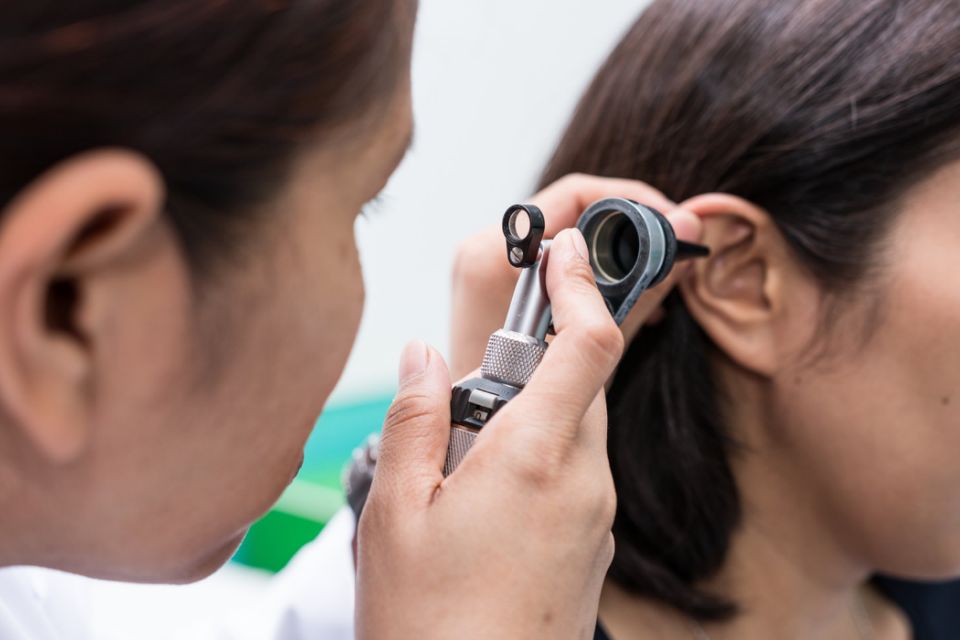
“I also suggest to moms of all ages not to avoid getting their hearing tested because of the stigma of hearing aids,” says McLaughlin. “There are so many discreet choices today and left untreated, hearing loss can lead to social isolation, cognitive decline and dementia.”
37
Never Get a Base Tan
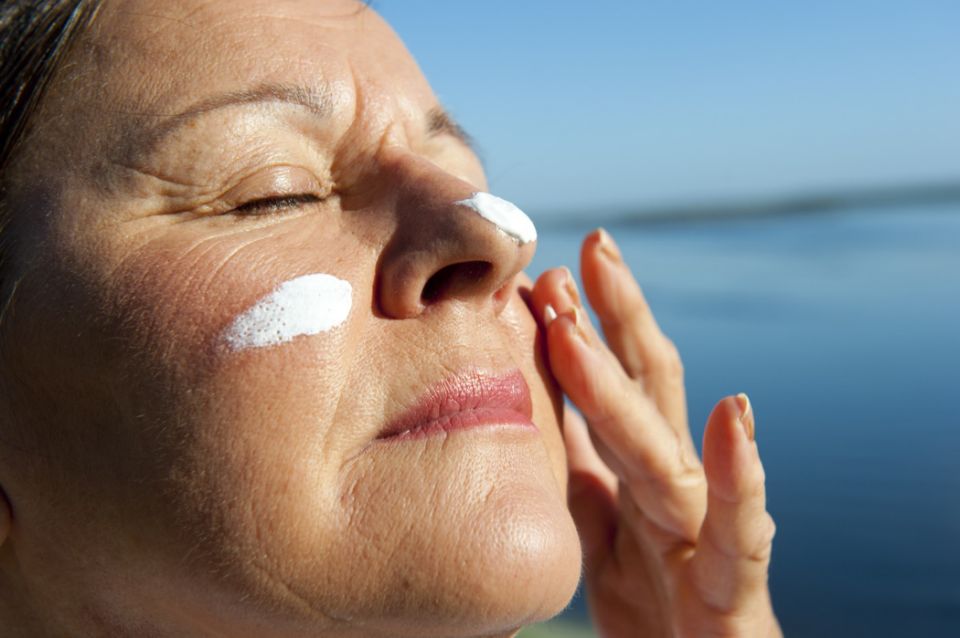
For years, people got a “base tan” before a vacation, thinking it would prevent sunburn and skin cancer. “This is a horrible idea and furthers your risk of getting skin cancer,” says Richard Torbeck, MD, a board-certified dermatologist with Advanced Dermatology PC in New York City. “Intermittent sunburn is directly linked to skin cancer risk.”
The Rx: The Skin Care Foundation recommends applying sunscreen that’s at least 15 SPF, which will protect you against potentially cancer-causing UVB rays.
38
Don’t Ignore This Skin Symptom
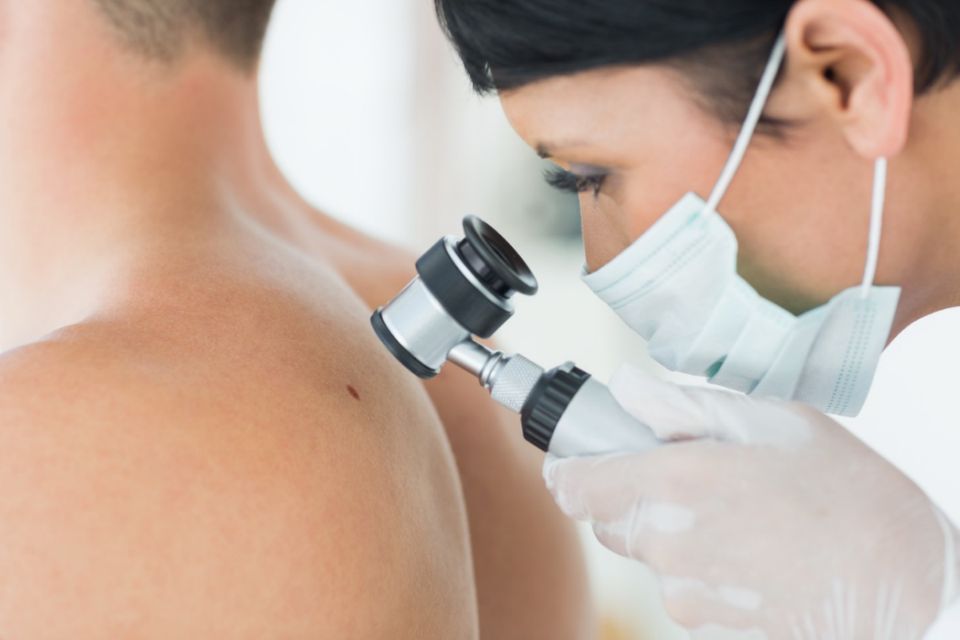
“A common overlooked skin sign is a mole that is darkening or changing in color,” says Torbeck. “Any time there is a mole that is changing in size, shape, color, itching or bleeding I recommend a biopsy. Do not forgo getting it looked at.”
39
Avoid These “Natural” Skin Products
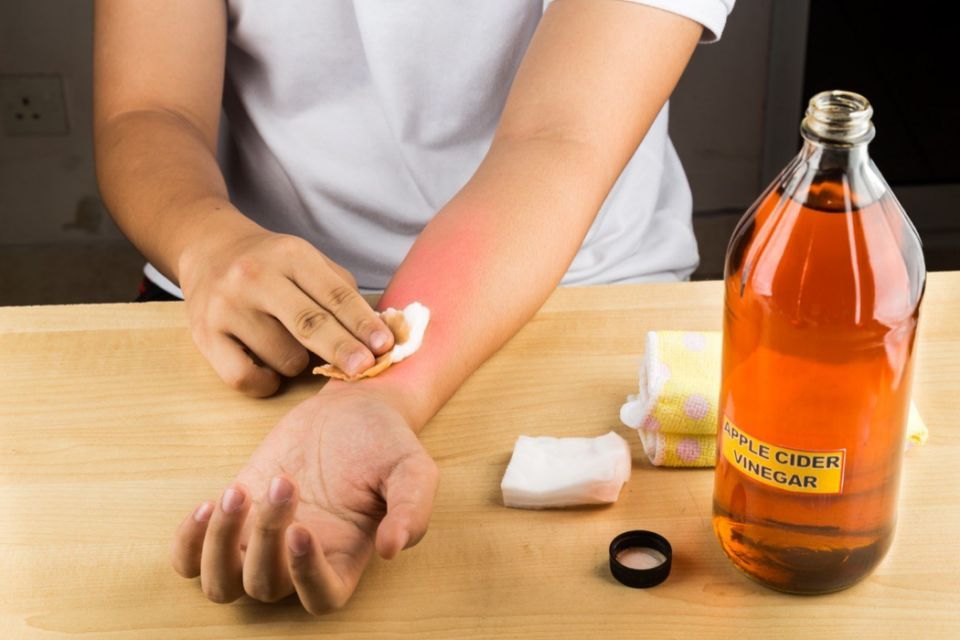
“Don’t use tea tree oil, witch hazel, apple cider vinegar, or rose-hip oils in order to treat acne or blemishes,” says Torbeck. “These home or natural remedies have some very weak data behind them. They are more likely to inflame the skin than to help it.”
40
Don’t Use Topical Steroids Too Often
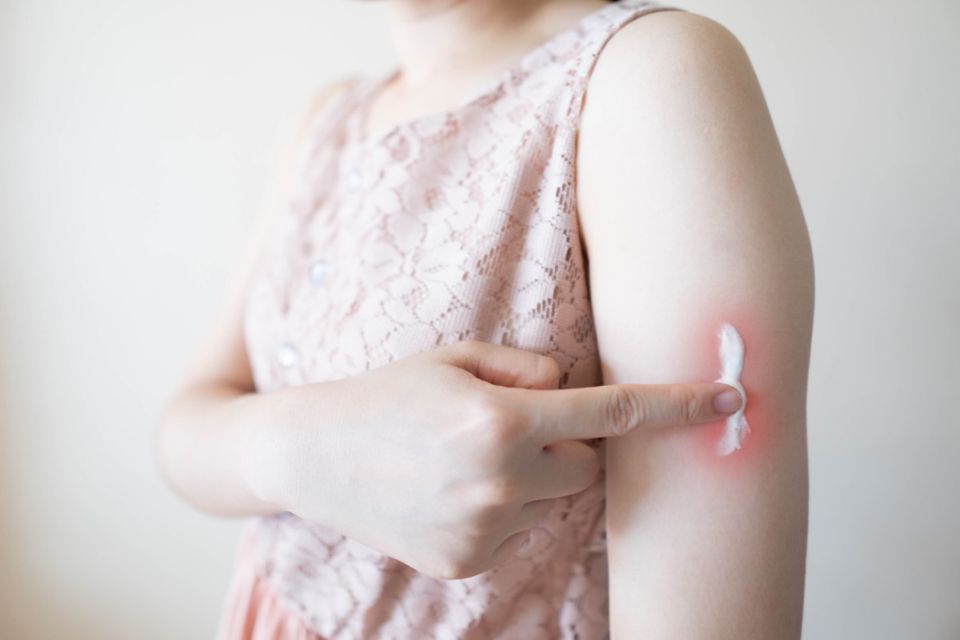
Your primary care doctor or dermatologist may have prescribed a topical steroid cream for a rash or blemishes, but if they don’t clear up relatively quickly, another course of action is necessary to prevent skin damage. “People’s skin can develop an addiction to topical steroids,” says Torbeck. “A rash that never really resolves that may slightly improve with steroids may be rosacea, seborrheic dermatitis, or contact dermatitis to steroids (which is rare).”
The Rx: “If a rash doesn’t improve with a steroid after two to three weeks on the body, and one to two weeks on the face, it’s prudent to see a dermatologist for a biopsy,” says Torbeck.
41
You Really Do Need That Vaccine
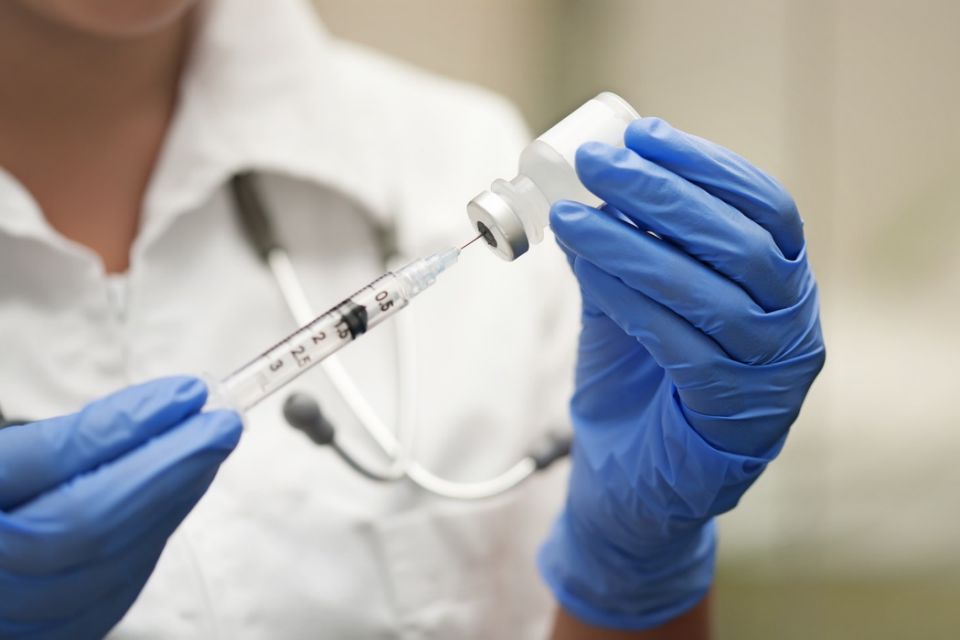
“My family and friends ask if they really need that flu shot since they’ve never gotten the flu before,” says J.D. Zipkin, MD, associate medical director of Northwell Health-GoHealth Urgent Care in New York. “The problem is that the majority of people hospitalized with influenza likely could have said the same thing beforehand. Yes, you need that vaccine. Vaccines are like seat belts: don’t wait for something bad to happen before you start using them!”
The Rx: Get a flu shot every year, and ask your doctor about other vaccines they might recommend, including those against pneumonia and shingles.
42
Realize This About Your Diet

“We are what we eat,” says Ronald Schuster, MD, a board-certified plastic surgeon in Baltimore, Maryland. “As we all get older it is even more important to eat well to stay well. Fads come and go, but food really can be medicine. I stress clean, sustainable sources of protein such as fatty fish, poultry, grass-fed beef, beans, nuts and seeds. Your plate should be full of mostly vegetables, especially dark leafy greens, tomatoes, avocados and vegetables like broccoli, carrots and Brussels sprouts. Mix some fruits such as berries into your salad to add flavor and powerful hit of antioxidants.”
The Rx: “Avoid piling food on your plate and those late-night binges before you go to sleep,” says Schuster. “Find the healthy foods that you like and make them a regular part of your diet and join a healthy food community to support you. Check out new recipes from communities online for how to add some spice and flavor to these healthy foods while having a healthy support system.”
RELATED: I’m a Doctor and This Vitamin May Reduce Your COVID Risk
43
Avoid Processed Food

“Equally if not more important than what you eat is what not to eat,” says Schuster. “Avoiding all processed foods (when possible) will go a long way to keep you healthy. Processed foods are filled with preservatives, artificial chemicals, sugar, sodium and empty calories that your body simply doesn’t need and/or know how to digest, which causes inflammation. Inflammation is the root cause of chronic disease.”
The Rx: Aim to eat as many whole foods as possible, with an emphasis on fruits and vegetables.
44
Know How To Avoid “Residual Risk” Of Heart Disease
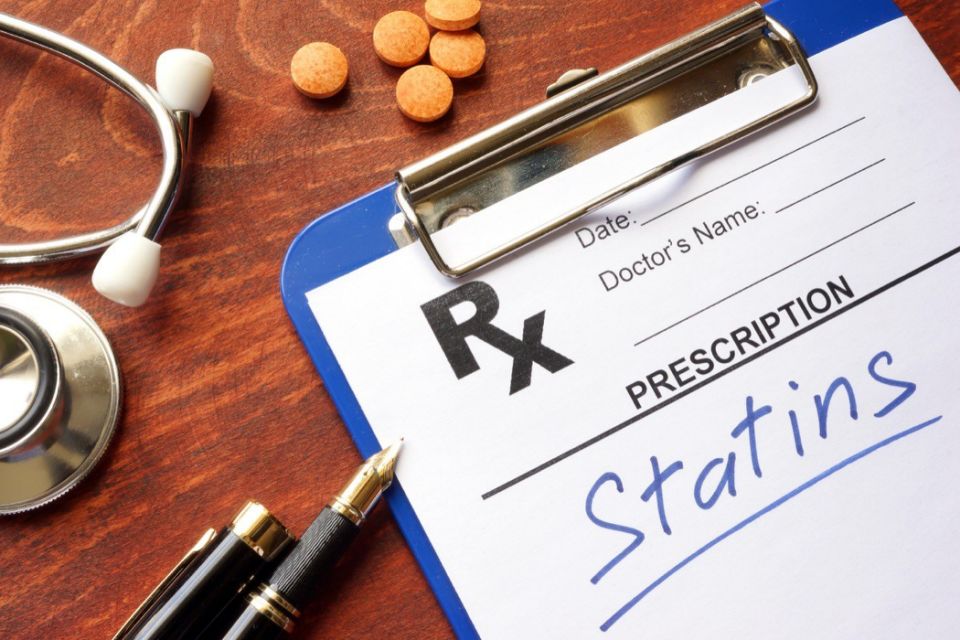
If you’re taking statins to lower your cholesterol, you still need to be vigilant about heart health. “Many doctors don’t emphasize enough that statins are often just the beginning, not the ending, of preventative care for heart disease,” says Robert Busch, MD, an endocrinologist at Albany Medical Center working on the REDUCE-IT cardiovascular risk reduction clinical trial. “Patients who have their cholesterol managed with statins are typically still at risk of having a cardiovascular event, including heart attack or stroke.”
The Rx: “I encourage these patients to consult their doctors because, beyond statin treatment, as there are other beneficial cardiovascular therapies that may be added to their regimens to further reduce their residual risks,” says Busch.
45
See Your Doctor At Least Yearly
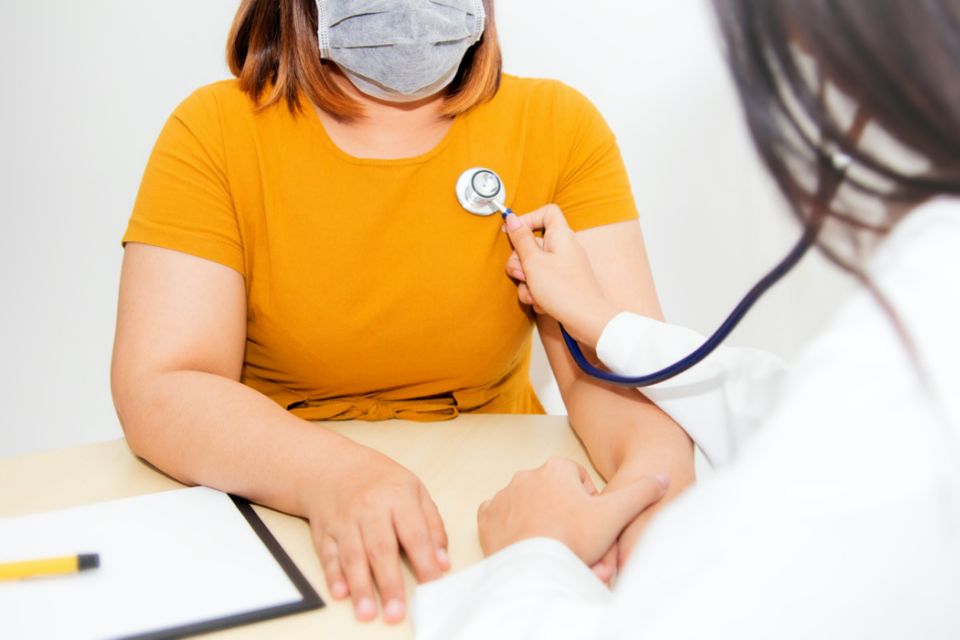
“Follow guidelines,” says Janas. “Labs yearly, check skin frequently, aspirin at 40, mammogram at 45, colonoscopy and prostate testing at 50, etc. Vaccinate. Don’t read the blogs against it. The importance of seeing a doctor once a year can’t be overstated.”
The Rx: “Despite being a physician, I still see my primary care physician once a year and do a full blood workup,” he adds.
46
Activate Night Shift On Your IPhone And Wear Blue Light Blocking Glasses

“The blue light from our screens can interfere with our circadian rhythms and disrupt our sleep,” says Youn. “Taking these two steps can be very helpful in giving you a good night’s rest.”
The Rx: In addition to enabling blue-light-reducing apps on your phone and computer, take your eyes off screens at least an hour before bed.
47
Don’t Forget the Fiber
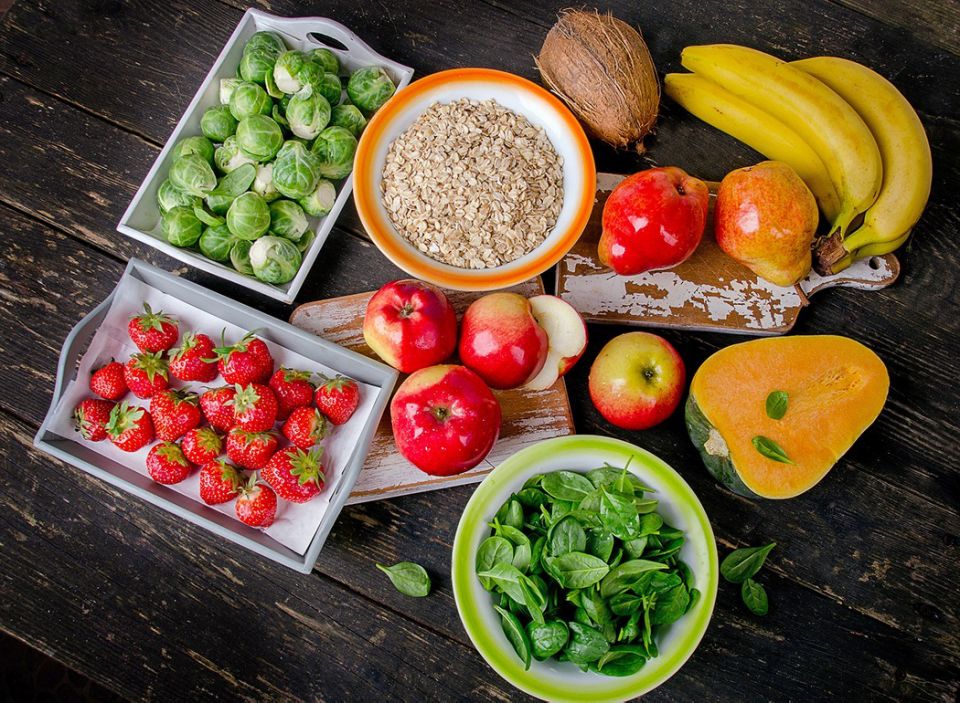
“Fiber can often be forgotten in the everyday diet, but it’s essential in healthy nutrition,” says Kim Yu, MD, a family physician in Mission Viejo, California. “Not eating enough fiber (via fruits and vegetables) can lead to constipation, decrease bowel transit and increase risk for colon cancer.”
The Rx: Aim for five to seven servings of fruits and vegetables daily. Other high-fiber foods include whole grains, nuts, seeds and oatmeal.
48
Be Wary of Supplements and Herbal Medicines
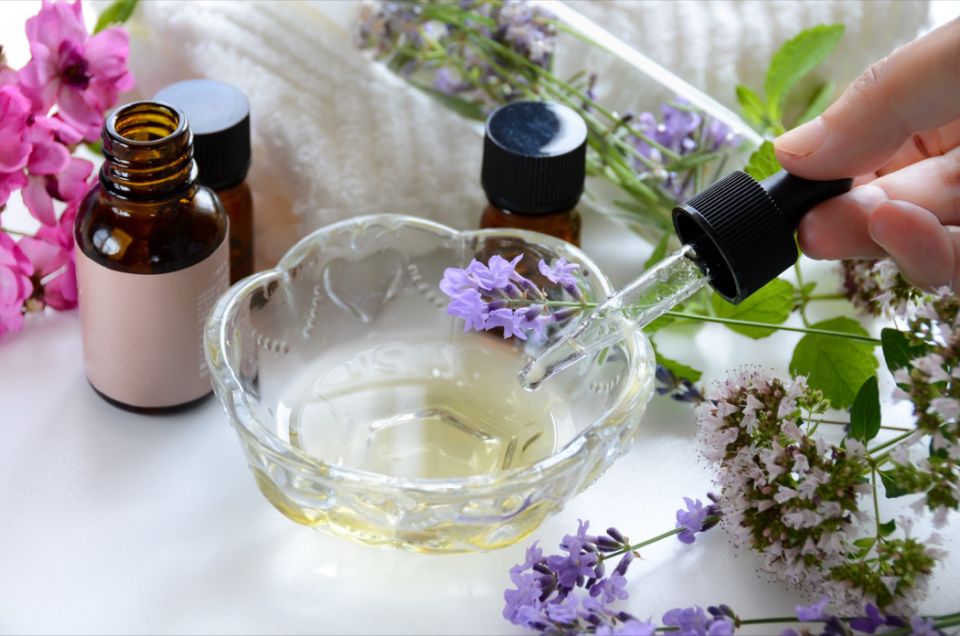
“Many everyday supplements and herbal medicines don’t have to get approval from the Food and Drug Administration (FDA) before putting their products on the market,” says LaTasha Perkins, MD, a family physician in Washington, D.C.
The Rx: “It’s important to speak with your physician about potential benefits and side effects, especially if you’re taking other medicine, have chronic health issues, are pregnant or breast-feeding,” she says.
49
You Don’t Need to Douche
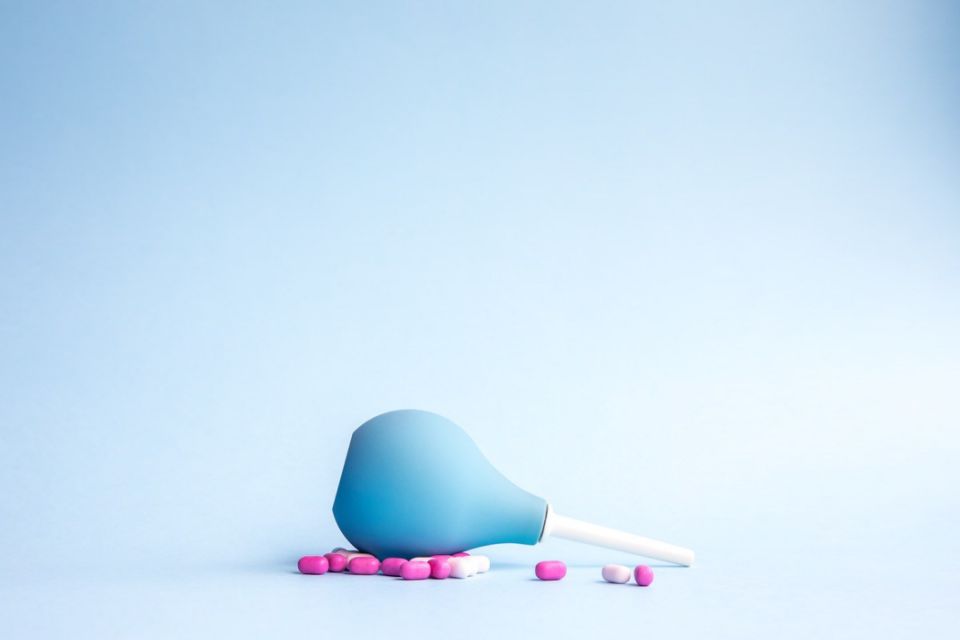
“Women often believe they need to douche to have a healthy vagina,” says Anita Ravi, MD, a family physician in New York City. “It’s counterproductive, as douching can increase the risk for infections such as yeast and bacterial vaginosis. The vagina is self-cleaning, and discharge can be normal.”
50
Carve Out Time for Self-Reflection

“One of the most valuable habits people can build into their day is setting aside time to reflect on a regular basis,” says Jay W. Lee, MD, a family physician in Huntington Beach, California. “Many adults are over-scheduled and feeling overwhelmed, which can lead to risk for depression and anxiety.”
The Rx: “It’s important to meditate and practice stress reduction and resiliency techniques every day,” says Lee. “Practice makes (closer to) perfect.”
And to get through this pandemic at your healthiest, don’t miss these 35 Places You’re Most Likely to Catch COVID.
